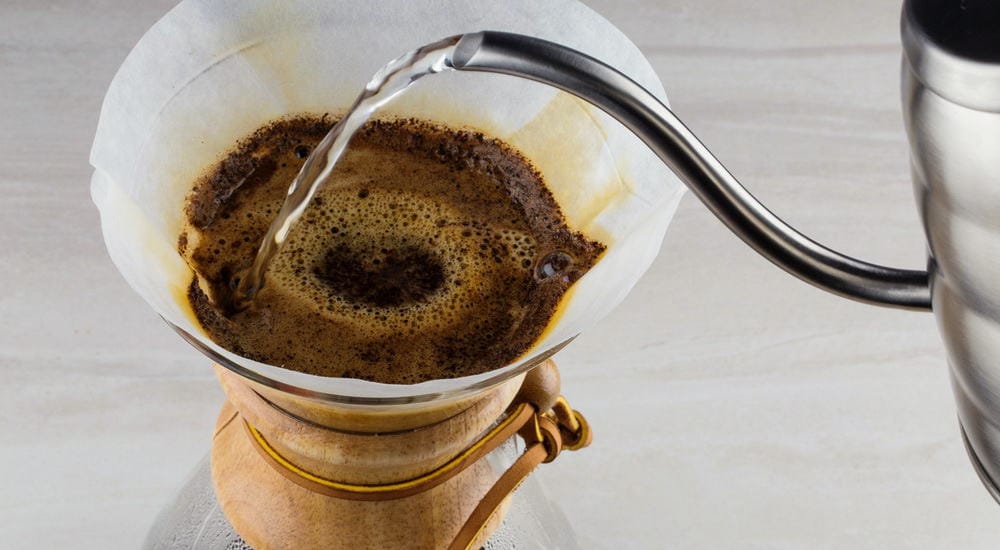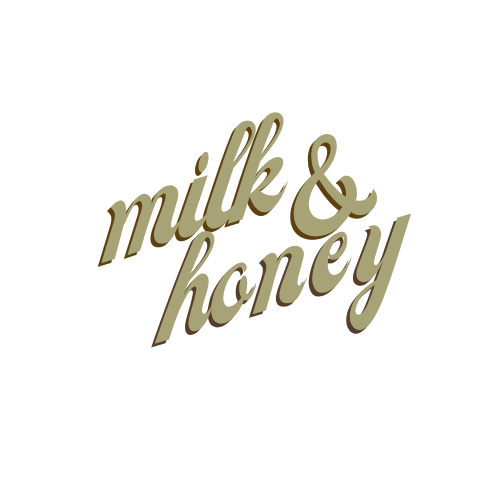
Does Water Hardness Affect Coffee Flavor?
Share
TLDR;
Yes, water hardness can significantly affect coffee flavor. Hard water can lead to bitter or chalky coffee due to high mineral content, while soft water can produce flat or sour cups due to under-extraction. To brew a balanced, flavorful cup, it's essential to control water mineral content.
How Water Quality Shapes Your Coffee Experience

The quality of water you use in brewing matters just as much as the beans themselves. At Milk & Honey Coffee, we understand that the minerals in your water are silent players in your morning cup. Whether you're a home brewer or a coffee shop owner, the type of water flowing through your machine could be making or breaking your brew.
Water makes up about 98% of a cup of coffee. That’s not just a fun fact — it’s a clue that what’s in your water matters. The presence (or absence) of minerals directly influences how well your coffee flavors extract, interact, and express themselves in the cup.
What Is Water Hardness, Really?

Water hardness refers to the concentration of minerals — primarily calcium and magnesium — in your water supply.
Types of Water Hardness
-
Temporary Hardness:
Caused by calcium bicarbonate and magnesium bicarbonate, which can be removed by boiling.
-
Permanent Hardness:
Due to calcium sulfate and magnesium sulfate; boiling won’t remove these. Requires chemical treatment or filtration.
Key Components:
-
Calcium: Plays a role in intensifying certain flavor compounds but may skew balance.
-
Magnesium: Known to aid in extracting pleasant coffee notes, often favored over calcium.
Hard water = high mineral concentration
Soft water = low mineral concentration
How Minerals Influence Coffee Extraction

Minerals don’t just dissolve in your coffee — they interact with it. Coffee brewing is a chemical extraction process, and minerals are key agents in that process.
Why Minerals Matter
-
Calcium and Magnesium:
Bind with acids and oils during extraction.
• Magnesium enhances fruity, floral flavors
• Calcium may highlight body but suppress brighter notes
-
Balance Is Crucial:
Too many minerals = over-extraction
Too few = under-extraction
Target Mineral Levels for Brewing
-
The Specialty Coffee Association (SCA) recommends:
• 150 ppm (parts per million) total dissolved solids (TDS)
• Calcium: 17 mg/L
• Magnesium: 5 mg/L
• pH around 7.0
Hard Water vs. Soft Water: A Flavor Comparison

Hard Water
-
Pros:
May enhance body and mouthfeel
-
Cons:
• Over-extracts bitter compounds
• Tends to dull acidity and brightness
• Can create chalky or metallic aftertastes
• Leads to limescale buildup in equipment
Soft Water
-
Pros:
• Avoids bitter overtones
• Preserves delicate notes (if managed correctly)
-
Cons:
• Under-extracts flavors, resulting in weak, flat brews
• Acidity may overpower without balance
• Can make coffee taste "sour" or "thin"
The Taste Spectrum
|
Water Type |
Common Flavor Outcomes |
|
Very Hard |
Bitter, chalky, muted complexity |
|
Moderately Hard |
Balanced, full-bodied |
|
Soft |
Flat, sour, underwhelming |
How to Measure and Adjust Water Hardness

If you're serious about brewing excellent coffee at home or commercially, you need to know your water's mineral profile.
Measuring Tools
-
Test Strips:
Quick and budget-friendly; gives rough ppm range
-
Digital Water Hardness Meters:
More precise and reusable
-
Lab Testing Kits:
Comprehensive but often more suitable for businesses
How to Adjust Water Hardness
-
Use a Water Softener:
Removes calcium and magnesium, but may increase sodium
-
Add Minerals Manually:
Products like Third Wave Water let you build the perfect water profile using distilled or reverse osmosis water
-
Blend Water Sources:
Combine soft and hard water to find your flavor sweet spot
-
Install a Reverse Osmosis (RO) System:
Ideal for cafes — removes virtually all dissolved solids so you can start from a blank slate
Effects of Hard Water on Coffee Equipment

Even if your taste buds don’t mind hard water, your espresso machine or brewer certainly will.
The Problem: Limescale Buildup
-
Calcium deposits form inside boilers and pipes
-
Reduces heating efficiency
-
Can clog valves, increase maintenance needs
-
Affects flavor by leaching heat and inconsistent pressure
Preventative Maintenance Tips
-
Descale regularly: Use citric acid or vinegar-based solutions
-
Use filtered water: Reduces impurities that contribute to scale
-
Flush your machine: Especially if switching water sources
Equipment longevity isn’t just about parts — it’s about preserving the consistency of every cup you serve.
How to Choose the Best Water for Brewing Coffee at Home

Your water doesn’t need to be fancy — it needs to be balanced.
Water Options
-
Tap Water:
Inconsistent; may contain chlorine, iron, or high minerals
-
Filtered Water:
Removes harmful impurities while keeping some beneficial minerals — a key reason Why Filtered Water Matters for consistent, flavorful brewing
-
Bottled Spring Water:
Variable mineral content; check the label for calcium/magnesium levels
-
Distilled/RO Water:
Too “empty” on its own; needs mineral supplementation
Barista-Proven Tools
-
Third Wave Water:
Mineral packets you add to distilled water for ideal brewing specs
-
DIY Mineral Blends:
For those comfortable with measuring calcium citrate, magnesium sulfate, etc.
Best Practices from Industry Experts

At Milk & Honey Coffee, our baristas regularly test and fine-tune water profiles to ensure our brews consistently hit the mark. Whether you're pulling espresso shots or making pour-over, here’s how to elevate your water game.
What We Recommend
-
Start with filtered or low-TDS water
-
Use a digital meter to monitor hardness
-
Avoid water that's too soft or entirely demineralized
- Adjust minerals if brewing specific bean profiles (e.g., African coffees may benefit from more magnesium)
The Role of Water in Flavor

Every variable in coffee brewing matters — grind size, temperature, brew time, and even how Packaging Affects Flavor — but water is the unsung hero that connects them all. If your water isn’t dialed in, no amount of technique can save the cup.
Why It Matters
-
Coffee is 98% water
-
Water quality directly affects flavor, extraction, and aroma
-
Poor water = wasted premium beans and inconsistent results
The Takeaway
-
You don’t need perfect water, but you do need controlled water
-
Invest in testing and tweaking — your taste buds will thank you
